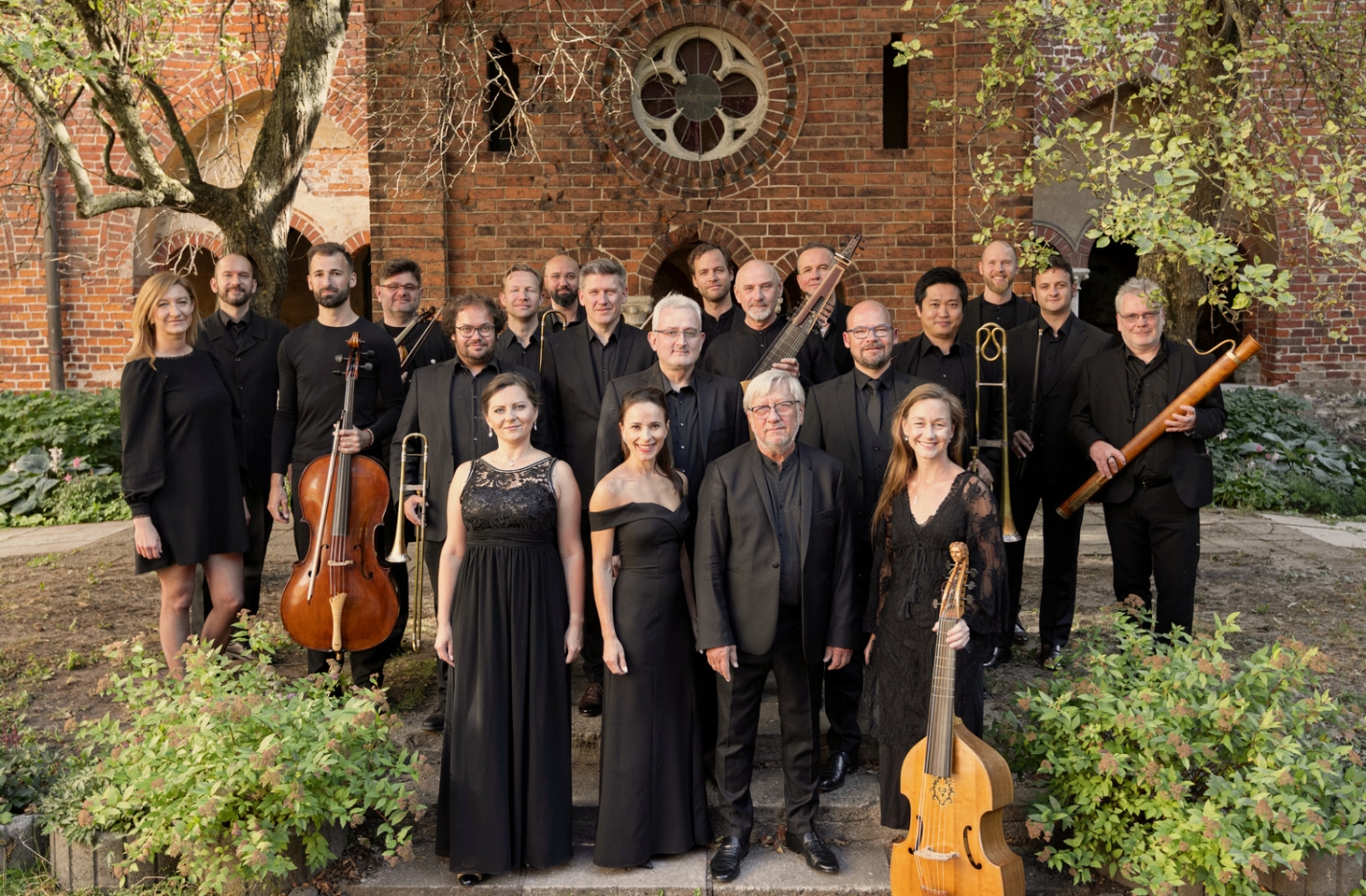Canon of the Resurrection
Performers
WROCŁAW BAROQUE ENSEMBLE (Poland):
ALDONA BARTNIK, ALEKSANDRA TURALSKA (sopranos)
PIOTR OLECH, DANIEL ELGERSMA (countertenors)
MACIEJ GOCMAN, FLORIAN CRAMER (tenors)
VOLODYMYR ANDRUSHCHAK, TOMÁŠ KRÁL (basses)
Artistic director and conductor ANDRZEJ KOSENDIAK (Poland)
Programme
MYKOLA DYLETSKY (1630–1690) –
Liturgia Rekwialna (Requiem Liturgy);
Kanon Zmartwychwstania (Canon of the Resurrection)
About
The Wrocław Baroque Ensemble and its artistic director and conductor Andrzej Kosendiak, a Polish ensemble that has established a beautiful friendship with Lithuania and has been visiting us for more than a decade, are presenting a programme of sacred vocal music. In keeping with its aim of bringing little-known Central European composers and their works out of obscurity, the ensemble mainly performs and records a wide range of early music, from chamber works to oratorios and cantatas. The concert at the Church of St. Casimir will feature sacred works by Mykola Dylecky, the unknown 17th-century Ukrainian composer and theoretician, which the Wrocław Baroque Ensemble has, so to speak, rediscovered and recorded on CD. Interestingly, Dylecky has links to Vilnius: he studied at the Vilnius Jesuit Academy, and later worked in Vilnius as a regent and teacher of church singing.
The musicians will present two sacred works by Dylecky written for two four-voice vocal ensembles. Conductor Kosendiak said that he first became acquainted with Dylecky’s music in 2019, when he performed excerpts from his Requiem Liturgy with the Wrocław Baroque Ensemble in Kyiv: “I was very impressed by it then, and as I continued to work with the composer’s music and to conduct concerts, I realized that I was dealing with a very unique and exceptional repertoire. After all, in Dylecky’s work, East and West meet in a fascinating way: the language, liturgy and melodicism of the Eastern Church interact with Western compositional techniques and musical styles.” The conductor says he also discovered that one of the ways in which polyphony came to Orthodox music was through Dylecky’s work, either through his links with Polish composers or through his knowledge of the Italian style. “It is possible that this process influenced Orthodox music, and it did not return to complete monody as in the 14th or 15th century. Thus, we have evidence that the Polish-Lithuanian Commonwealth of that time was a platform for unrestricted exchange and synergy of artistic ideas, and that the foundations of European integration in the field of culture were being laid in the territory of the Republic of Both Nations,” says Kosendiak.
Free admission


